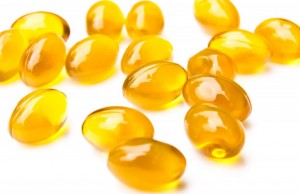Heart Healthy Updates
Stress May Make It Harder To Recover From A Heart Attack
 You may know that eating a balanced meal plan and staying active are important to keeping your heart healthy. But one part of a heart healthy lifestyle that seems to be forgotten is controlling stress. A recent study published in the journal Circulation has found that women between the ages of 18 and 55 may have a harder time getting better after a heart attack if they have a lot of mental stress.
You may know that eating a balanced meal plan and staying active are important to keeping your heart healthy. But one part of a heart healthy lifestyle that seems to be forgotten is controlling stress. A recent study published in the journal Circulation has found that women between the ages of 18 and 55 may have a harder time getting better after a heart attack if they have a lot of mental stress.
It suggested that these women have more mental stress than men their age because of finances, having to take care of their children, or dealing with other family care issues. This study, which was done at the Yale School of Medicine, looked at men and women ages 18 to 55 years and to see what stressful events were going on in their lives, and how well they were able to recover from a recent heart attack.
Of the those surveyed, women were about one-half more likely than men to have dealt with a family conflict, about one-third more likely to have dealt with a major personal injury or illness, and about one-half more likely to have dealt with a close family member that was ill or passed away. Men were only more likely than women to deal with a financial stress due to a crop or business failure. Overall, because of this higher mental stress, women were more likely to have chest pain and a poorer overall quality of life than men in the month after a heart attack.
The researchers suggest that healthcare providers should focus on providing mental health resources to those who have heart attacks. A more holistic approach to healthcare can prevent future heart attacks or other heart disease events in such patients. For everyone, it is important to find ways to manage stress. This may be through talking with loved ones, seeking support from a healthcare provider or support group, or finding more time to be active. Dealing with stress in a healthy way can help you build a foundation for a heart healthy lifestyle free from heart attack and stroke.
Taking A Nap May Improve Your Health
 High quality sleep is an important part of a healthy lifestyle. However, with busy schedules at work and at home, getting enough sleep may be an afterthought compared to the many other things on your to-do list. A recent study published in the Journal of Clinical Endocrinology and Medicine found that if you cannot seem to get enough sleep at night, a short nap or two a day may help you reclaim some of the health benefits.
High quality sleep is an important part of a healthy lifestyle. However, with busy schedules at work and at home, getting enough sleep may be an afterthought compared to the many other things on your to-do list. A recent study published in the Journal of Clinical Endocrinology and Medicine found that if you cannot seem to get enough sleep at night, a short nap or two a day may help you reclaim some of the health benefits.
Researchers at the Universite Paris Descartes-Sorbonne Paris Cite in France looked at a group of men aged 25 to 32 years and made them go through a whole day with only 2 hours of sleep. It was found that these men had 2.5 times the amount of the stress hormone, norepinephrine, in their blood, which controls heart rate, blood pressure, and blood glucose levels. It was also found that the men had lower levels of a protein called interleukin-6, which fights off illness. On another day of the study, the men were still only allowed to get 2 hours sleep, but were allowed to take two, 30-minute naps throughout the day. The levels of the stress hormone and interleukin-6 protein were found to be normal.
By allowing your body to sleep a little during the day, it is able to restore some of that sleep time that is needed to regulate the many processes needed for optimal health. Although you may not be able to nap throughout the day, this study makes it clear that sleep is an important part of health. Put sleep on top of your daily to-do list so you can stay on top of your health.
Cholesterol May No Longer Be A Heart Health Enemy
 Health authorities have long thought that cholesterol from food is bad for your heart health. You may have been told to stay away from foods like egg yolks, shrimp, and butter due to their high levels of cholesterol. However, a recent review of dietary guidelines has found that cholesterol in food may not be bad for your health at all.
Health authorities have long thought that cholesterol from food is bad for your heart health. You may have been told to stay away from foods like egg yolks, shrimp, and butter due to their high levels of cholesterol. However, a recent review of dietary guidelines has found that cholesterol in food may not be bad for your health at all.
Members of the Dietary Guidelines Advisory Committee are saying that there is little evidence to support any dietary guidelines on cholesterol. People should no longer be concerning themselves about cutting eggs out of their meal plans, but instead should focus on cutting down on foods with high levels of saturated fat such as whole milk and fried foods.
Americans are getting too much saturated fat and sodium, and not enough healthy calcium from low-fat dairy products, or fiber from fruits, veggies, and whole grain foods. The response to this new guideline should be to focus on getting more of the nutrients that most Americans are lacking, and less of the fast food and processed food products that Americans are getting too much of. Dietary guidelines, like everything in science, will continue to evolve and change. However, the basic guidelines of staying heart healthy, which are to eat more fresh, whole foods, stay active, get plenty of sleep, and see your healthcare provider often, are a formula for health that will likely never be disputed.
Every Blood Pressure Point Counts When It Comes To Stroke Risk
 You may be aware that having high blood pressure can increase your risk for stroke. However, it has been long thought that the top number of the blood pressure reading (the systolic number) only needed to be below 150 to be considered a lower risk for stroke. A study presented by the American Stroke Association has found that the systolic number should be below 140 to have the most positive effect on preventing a first stroke.
You may be aware that having high blood pressure can increase your risk for stroke. However, it has been long thought that the top number of the blood pressure reading (the systolic number) only needed to be below 150 to be considered a lower risk for stroke. A study presented by the American Stroke Association has found that the systolic number should be below 140 to have the most positive effect on preventing a first stroke.
A group of New York City residents over the age of 60 years was observed for blood pressure and stroke risk. Those who had a systolic reading between 140 and 149 were 70 percent more likely to have a stroke than those with numbers below 140. Those with systolic numbers above 150 were about 80 percent more likely to have a stroke than those with readings below 140.
This finding suggests that having a systolic number between 140 and 149 is almost as bad as having a reading above 150. Furthermore, having a blood pressure reading above 140 is most harmful to those who are Hispanic, Black, or female. Women, Blacks, and Hispanics were at least twice as likely to have their first stroke when their systolic reading was above 140. Men with readings above 140 were only one-third more likely to have a stroke.
So if you have high blood pressure or other risk factors for stroke, take steps to build yourself a heart healthy lifestyle plan. Visit your healthcare provider on a regular basis, eat a heart healthy meal plan, stay active, quit smoking, get plenty of sleep, and find good ways to keep your stress levels under control. These are the best ways to lower high blood pressure and prevent strokes.
Vitamin D May Improve Health After A Stroke
 There are so many vitamins and minerals you are told to eat as part of a healthy meal plan, that some of them may get lost in the crowd. However, vitamin D may soon be too important for you to forget. A recent report by the American Stroke Association has found that vitamin D may be vital to improving health outcomes after a stroke.
There are so many vitamins and minerals you are told to eat as part of a healthy meal plan, that some of them may get lost in the crowd. However, vitamin D may soon be too important for you to forget. A recent report by the American Stroke Association has found that vitamin D may be vital to improving health outcomes after a stroke.
A group of people treated for stroke between 2013 and 2014 had their blood work and brain scans looked at by stroke researchers. It was found that those with low vitamin D levels (less than 30 nanograms per milliliter) in their blood had two times more stroke-related dead brain tissue than those with normal levels of vitamin D in their blood. For every 10 nanograms per milliliter reduction of vitamin D in the blood, patients were 50 percent less likely to recover from their stroke within three months.
Researchers report that it is too soon to say that low vitamin D levels in the blood are related to poor stroke outcomes. However, it is suggested that more studies like this could help us figure out if vitamin D could be given to those at risk for stroke to protect their health. To make sure you get plenty of vitamin D each day, be sure to have vitamin D-fortified dairy products, soy milk, and fatty fish such as salmon, herring, catfish, trout, and mackerel. Egg yolks, mushrooms, beef liver, and cheese are also good sources of vitamin D. If you are not sure you get enough vitamin-D from the food you eat, you can also get the vitamin from being outside. Just 15 minutes of sunshine twice a week to exposed areas of your face, arms, legs, or back can provide the vitamin D you need.

